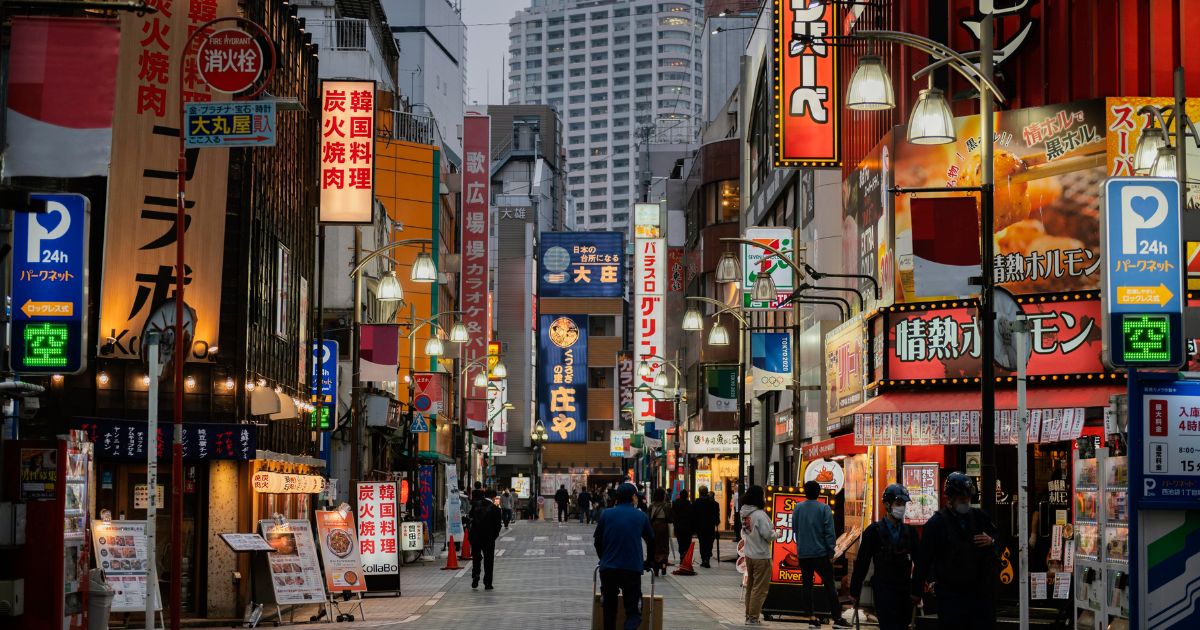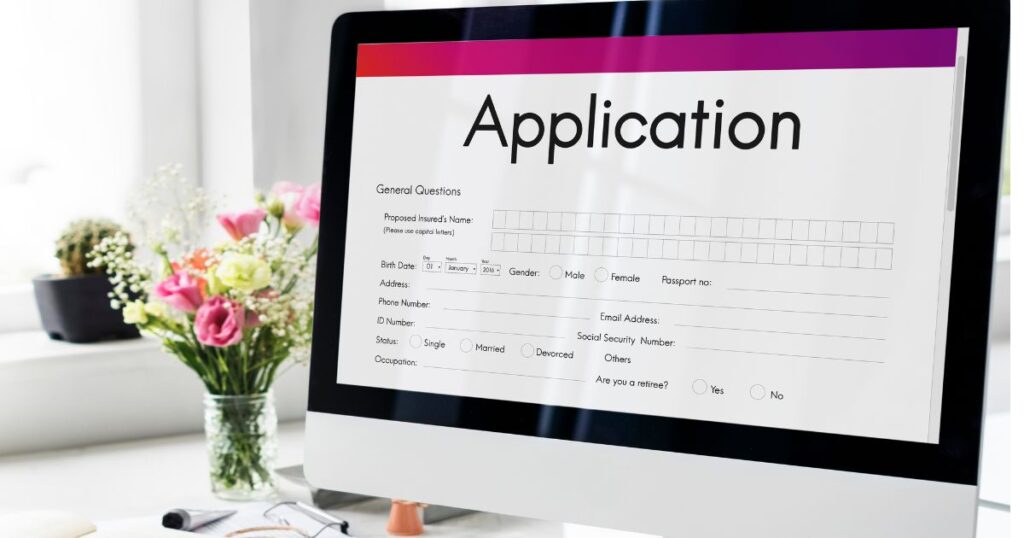How to get a work visa for Japan 2023- Complete Guide
Japan is a land of rich culture, stunning landscapes, and a booming economy, making it an attractive destination for individuals seeking employment opportunities abroad. If you’re considering working in Japan in 2023, you’ll likely need a work visa to legally live and work in the country. This comprehensive guide will walk you through the process of obtaining how to get a work visa for Japan, including the requirements, application process, and tips to increase your chances of success.
Table of Contents
Why Work in Japan?
Before we delve into the intricacies of obtaining a Japanese work visa, it’s essential to understand why Japan is a desirable destination for many expatriates.

1. Economic Opportunities: Japan boasts one of the world’s largest economies, offering a plethora of job opportunities in various sectors, including technology, manufacturing, finance, and education.
2. Cultural Experience: Living in Japan provides a unique opportunity to immerse yourself in a rich and diverse culture. From ancient traditions to modern pop culture, Japan has something to offer everyone.
3. Safety and Quality of Life: Japan consistently ranks as one of the safest countries globally, with excellent healthcare, education, and public transportation systems. The quality of life is generally high, making it an attractive place to live and work.
4. Travel Opportunities: Japan’s strategic location in Asia makes it an ideal base for exploring other countries in the region, from South Korea to Southeast Asia. You can easily take weekend trips to explore the diverse landscapes and cultures nearby.
Now that you’re excited about the prospect of working in Japan, let’s dive into the steps to obtain a work visa.
What are the new specified skills visas in Japan?
Specified Skills Visa 1-SSV1
- Specific Skills Visa-1 with Five Years of Renewable Visa
- Must bypass the Japanese Language Proficiency Test (JLPT N4)*
- Must clear the Specified Skills Test
- Foreign people can stay and paintings in Japan for a maximum of five years
- Workers under this category are not eligible to deliver to their families in Japan
After gaining enough enjoyment in Japan, employees under this category may be able to follow the nonstop renewable visa to be able to have the advantages of the second type.
Specific Skills Visa-2 with Nonstop Renewable Visa
- Must clear the test of Japanese Language Proficiency Test (JLPT)*
- Must have an experience and certification with relevant higher-level specialized skills with experience and certification
- International workers can work and stay in Japan with the nonstop renewal of visas until they become residents of Japan or have an indefinite stay ( maximum 10 years) in Japan.
- Workers have the right are eligible to call their family members (spouse and children) in Japan.
It is believed that candidates need to pass the JLPT degree N4 or degree N5, depending on which detailed ability class they belong to. Anyway, both stages N4 and N5 are assessments that measure the level of expertise of fundamentals the Japanese language.
Aside from the language talent examination, you want to take the competencies exam to acquire the desired capabilities visa. You can test the “Specified Skills No. 1 Evaluation Test” to recognize greater details such as the timetable of the talent evaluation take a look at.
Types of Work Visa for Japan
Japan offers several types of work visas to accommodate various employment scenarios. The specific type of visa you need depends on your job and the intended duration of your stay. Here are some of the most common work visa for Japan:

1. Specialist in Humanities/International Services (Visa Type: Humanities)
This visa is suitable for individuals working in fields like education, translation, research, and journalism. It is one of the most common visa types for English teachers and foreign academics.
2. Engineer/Specialist in International Services (Visa Type: Engineer)
Engineers, IT professionals, and individuals in similar technical fields typically apply for this visa. It also covers individuals employed in the medical and legal professions.
3. Skilled Labor (Visa Type: Skilled Labor)
This visa is for individuals working in industries that require specific skills, such as construction, agriculture, or manufacturing.
4. Intra-company Transferee (Visa Type: Intra-Company Transferee)
If you work for a multinational company and are being transferred to the company’s Japanese branch, this visa may be suitable for you.
5. Highly Skilled Professional (Visa Type: Highly Skilled Professional)
This visa is for individuals with exceptional skills and qualifications in their respective fields. It offers certain benefits, such as faster processing times and extended periods of stay.
6. Cultural Activities (Visa Type: Cultural Activities)
If you plan to engage in cultural or artistic activities, such as learning traditional arts or participating in cultural exchange programs, this visa is appropriate.
7. Student Visa (Part-time Work Allowed)
If you’re planning to study in Japan and work part-time, you can obtain a student visa that allows you to work a limited number of hours while studying.
Identify which visa category aligns with your employment situation, as this will be crucial in the application process.
Basic Requirements for a Japanese Work Visa
To obtain a work visa for Japan, you’ll need to fulfill certain requirements and provide specific documents. Here’s a checklist of the basic requirements:

1. Job Offer: You must have a confirmed job offer from a Japanese employer. This offer should include details of your position, salary, and the duration of your employment.
2. Certificate of Eligibility: Your prospective employer in Japan must apply for a Certificate of Eligibility (COE) on your behalf. The COE is a crucial document that demonstrates your eligibility for a work visa.
3. Passport: Ensure that your passport is valid for the entire duration of your intended stay in Japan.
4. Visa Application Form: You will need to complete a visa application form, which can typically be obtained from the Japanese embassy or consulate in your home country.
5. Passport-sized Photos: You’ll need recent passport-sized photos that adhere to Japan’s visa photo specifications.
6. Proof of Financial Stability: You may be required to provide evidence of sufficient financial resources to support yourself in Japan. This can include bank statements, tax returns, or a letter of financial support.
7. Educational and Professional Certificates: Depending on your job, you may need to submit copies of your educational and professional qualifications.
8. Health Certificate: In some cases, you may be required to undergo a medical examination and submit a health certificate to prove that you are in good health.
9. Visa Processing Fee: Be prepared to pay a processing fee when submitting your visa application.
10. Additional Requirements: Depending on the type of work visa, you may need to fulfill additional requirements. For example, English teachers often require a degree in English or education and a criminal background check.
The Application Process
Once you have gathered all the necessary documents and met the basic requirements, you can proceed with the visa application process. Here’s a step-by-step guide to help you navigate the process of a work visa for Japan:

1. Obtain a Certificate of Eligibility (COE):
- Your prospective employer in Japan must initiate the COE application process on your behalf. They will submit the required documents to the regional immigration office in Japan.
- The processing time for a COE can vary but typically takes several weeks to a few months.
2. Submit the Visa Application:
- Once your COE is approved, you can apply for the actual visa at the Japanese embassy or consulate in your home country.
- Complete the visa application form and attach the necessary documents, including your COE.
- Pay the visa processing fee, which is typically non-refundable, even if your application is denied.
3. Attend an Interview (if required):
- In some cases, you may be asked to attend an interview at the Japanese embassy or consulate.
4. Wait for Visa Approval:
- Visa processing times can vary, so be patient and prepare for potential delays.
- Check the status of your application through the embassy’s or consulate’s website or by contacting them directly.
5. Receive Your Visa:
- Once your visa is approved, it will be affixed to your passport. Ensure that all the information on the visa sticker is accurate.
- You are now ready to embark on your journey to Japan!
Tips for a Successful Work Visa Application
Getting your work visa for Japan approved is a significant step in your journey. To increase your chances of success, consider the following tips:
1. Start Early: Begin the visa application process well in advance to allow for any unexpected delays or issues.
2. Double-check documents: Ensure that all required documents are complete, accurate, and up-to-date.
3. Follow Instructions: Read and follow the instructions provided by the Japanese embassy or consulate carefully.
4. Seek Legal Advice: If you’re unsure about any aspect of the application process, consider consulting with an immigration lawyer or expert.
5. Be Honest: Provide truthful information in your application. Any false information could lead to visa denial or even legal consequences.
6. Prepare for the Interview: If an interview is part of the application process, rehearse your responses and be ready to discuss your qualifications and job offer.
7. Maintain Open Communication: Stay in touch with your prospective employer and the immigration authorities to ensure a smooth application process.
8. Learn Some Japanese: While not always required, having some basic knowledge of Japanese can be beneficial for everyday life in Japan and can make a positive impression.
Renewing and Extending Your Work Visa for Japan
Once you have successfully obtained your work visa for Japan and started working in Japan, it’s essential to stay informed about the visa renewal and extension process. Work visas in Japan are typically issued for a specific duration, often one to three years, depending on the type of visa. To extend your stay or renew your visa, follow these steps:
1. Prepare the Necessary Documents: Just like the initial application, you’ll need to provide a Certificate of Eligibility (COE) and other relevant documents to renew or extend your work visa.
2. Apply Before Expiry: Make sure to submit your renewal or extension application well before your current visa expires. Delays or late applications can lead to complications.
3. Continue Employment: Ensure that you continue working for the same employer or in the same field as specified in your current visa.
4. Attend an Interview (if required): Similar to the initial application, you may be asked to attend an interview when renewing or extending your visa.
5. Wait for Approval: The processing time for renewals and extensions can also vary, so plan accordingly.
6. Keep Your Records Updated: Maintain up-to-date records with the immigration authorities, including any changes in your employment or address.

Conclusion
Obtaining a work visa for Japan in 2023 can be a fulfilling and life-changing experience. With the right preparation, documents, and patience, you can navigate the application process successfully and embark on your new adventure in Japan. Remember to stay informed about the latest immigration requirements and regulations to ensure a smooth transition and a rewarding experience as you live and work in this captivating country. Japan offers not only professional opportunities but also a chance to immerse yourself in a unique and vibrant culture that will enrich your life in countless ways.
Aiman Khalid
I’m Aiman Khalid, your dedicated SEO Analyst. With a passion for digital marketing and a keen eye for optimizing online experiences, I’ve made it my mission to help businesses thrive in the digital realm. My journey into the world of SEO began with a fascination for search engines and their algorithms, and since then, I’ve honed my skills to become a seasoned professional. Armed with years of experience, I specialize in crafting SEO strategies that not only boost search engine rankings but also drive tangible results, such as increased website traffic and conversions. I’m here to demystify the world of SEO and empower your online presence, one keyword at a time.
-
© Copyright 2020 | www.pairstravel.com
